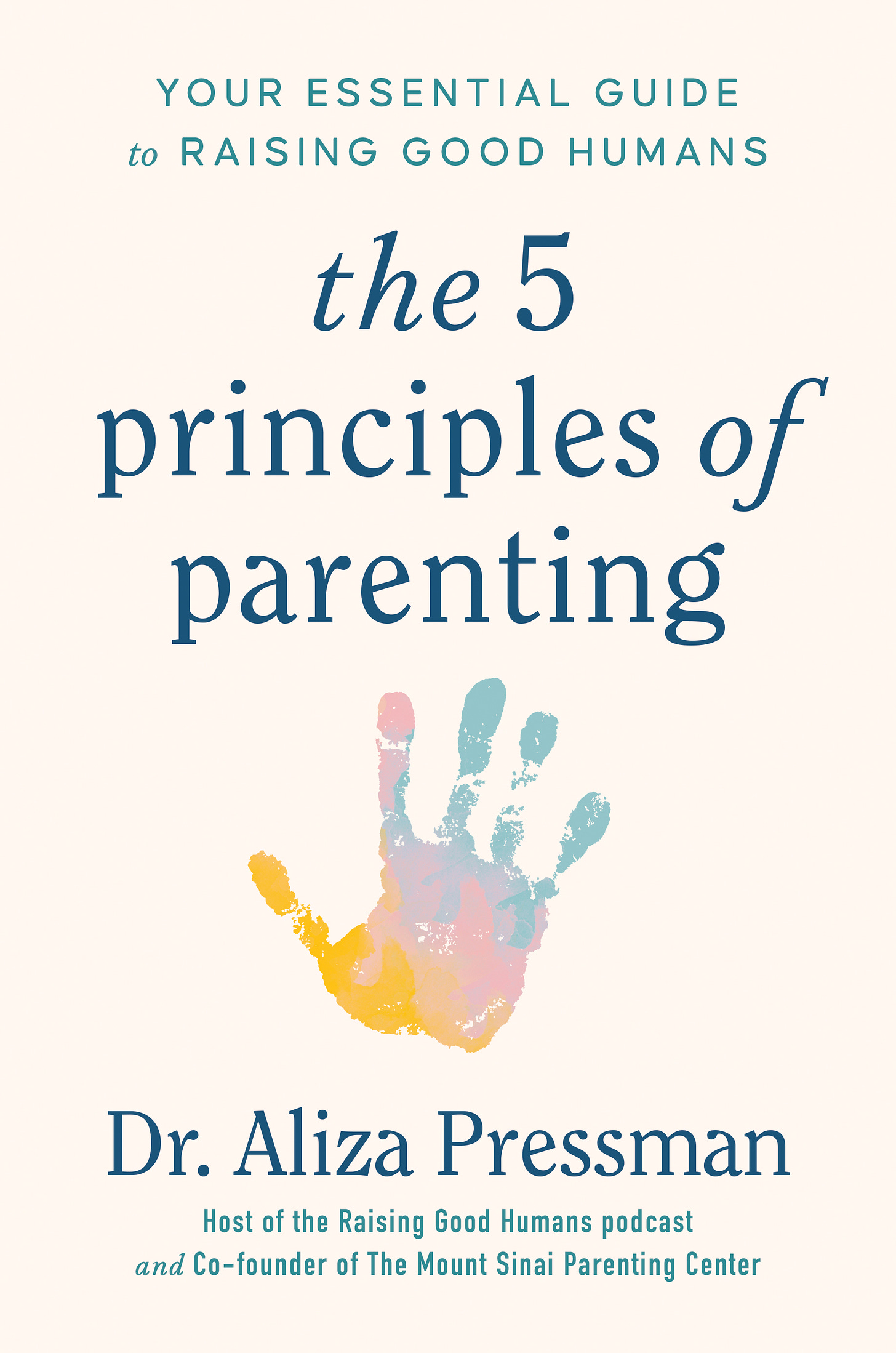Thanks for reading Raising Good Humans on Substack! My first book, The Five Principles of Parenting: Your Essential Guide to Raising Good Humans is now available for purchase here.

Are you tired of the constant battle of wills with your children? Do you feel like you're stuck between being too permissive and too strict? It turns out, there's a better way to approach discipline – one that focuses on teaching and building a strong relationship with your child, rather than just doling out punishment.
In chapter 11 of my book, The Five Principles of Parenting: Your Essential Guide to Raising Good Humans, now available in paperback, I go through the science behind discipline, and how we can find day-to-day clarity.
The Problem with Punishment
Many of us associate "discipline" with punishment, but science shows that punishment doesn't actually lead to long-term compliance. It can even damage your relationship with your child. On the other hand, simply letting kids do whatever they want isn't the answer either. So, what's a parent to do? The key is to shift your mindset. Think of discipline as an opportunity to teach your child how to navigate the world, make good choices, and regulate their emotions. This approach not only helps them learn valuable life skills but also strengthens your bond.
Finding the Balance
There's a sweet spot between indulgence and punishment. It's a space that includes:
Understanding your child's perspective
Being curious about their behavior
Setting clear and consistent boundaries
Offering self-compassion and opportunities for repair
Seven Steps to Balanced Discipline
When faced with challenging behavior, remember these seven science-backed steps [BALANCE for short]:
Breathe: Take a moment to calm yourself before reacting.
Acknowledge your baggage: Recognize how your own feelings and past experiences might be influencing your response.
Let it go: Don't try to teach a big lesson in the heat of the moment.
Assess the present moment: Gauge your child's state of mind.
Notice: Observe what's going on with your child's body.
Connect: Let your child know you see them and offer compassion.
Engage: Respond intentionally and thoughtfully.
Other Key Takeaways for Effective Discipline
We’ve discussed many of these over the years! Strong practices around connection, routine, and engagement can help with behavior across the board.
Set clear expectations: Kids thrive on knowing what's expected of them.
Use connected consequences: Instead of punishment, use natural or logical consequences that relate to the behavior.
Catch your child being good: Focus on positive reinforcement and praise specific behaviors.
Help kids understand their bodies: Teach them about interoception (the ability to sense what's going on inside their bodies).
Establish routines: Predictable routines help kids feel secure and in control.
Understand moral development: Kids' understanding of right and wrong evolves as they grow.
Practice intentional discipline: Strengthen the connection between the back and front parts of the brain through consistent and thoughtful responses.
Remember that parenting is a journey, not a race. You will make mistakes, and that's okay. The most important thing is to keep learning, growing, and striving to build a loving and supportive relationship with your children.
A quick reminder to buy my first book, The Five Principles of Parenting, and write a review from wherever you order. Reviews really help to get the book noticed, and to spread the word. Please especially rate and review any books purchased on Amazon (it shockingly really, really matters!). Also, when you receive the book, snap a quick pic with it and post on social media. Share one thing you love about it and help me to get more copies into the hands of parents in your community. Tell a friend about the book, or about something you found helpful in the book. Parents look to each other for advice, and I’d love to be a part of the support you pass on to your loved ones.






needing “day-to-day” clarity is crazy, as if parenting isn’t everyday
I Love the BALANCE advice. I have found that my children respond positively when I role model discipline and am able to put my phone away when my timer rings. They watch me like a hawk even when I think they aren't looking.